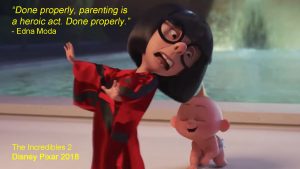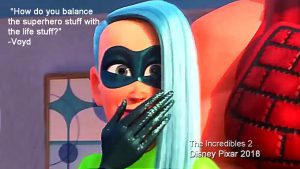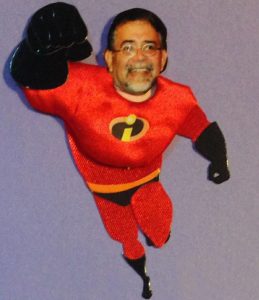On Mulan’s Anniversary- Reflections on Caregiving and Who I Am Inside
Reflection
Music by Matthew Wilder
Lyrics by David Zippel
Performed by Lea Salonga
Mulan (1998) Walt Disney Feature Animation
Today is the anniversary of the release of Mulan. It was actually the first Disney film Ben and I saw together when we began dating. It is hard to believe it was 22 years ago. At that time, Ben was not quite the Disney fanatic that I was, but he wanted to impress me so we made frequent visits to the Disney Store and he took me to see this film on opening day in what became our tradition of opening day viewings of Disney and Pixar films. As it turned out, Ben loved this film and he was very happy to find Mulan ornaments for our Christmas tree. He particularly loved the song in this clip, Reflection. I can relate to it, although Mulan was struggling with her identity within her family and I am struggling more within myself.
Somehow I cannot hide
Who I am, though I’ve tried.
When will my reflection show who I am, inside?

Ben loved Mulan and Buzz Lightyear!
I’ve written a lot about feeling like I was, and still am, floundering, because when I lost my dad and Ben, I also lost my role as a caregiver. Caregiving consumed my life. I did what I was expected to do but also what I felt in my heart was the right thing to do. Despite the emotional and physical stress, it was the most important, meaningful and loving work I have ever done. I learned that at my core I am an attentive and devoted caregiver, whether to my dad, Ben or my students. Caregiving also revealed to me a strength that I never would have believed I possess, and that my often emotional demeanor would never have conveyed. Once that role was removed, I lost myself and my reflection was blurred.
Because caregiving was so much of who I’ve come to be, it is still difficult for me when I realize that people I meet now do not know the story of Ben and my dad. I am no longer known as Abby, Ben’s caregiver, or Abby who was so devoted to her dad and her husband. Being my dad’s caregiver and his whole world, and being the person at Ben’s side throughout his battle with ALS are aspects of how I see myself, even though those actual days are done. Presenting myself apart from Ben, as a person on my own, seems incomplete, and almost disrespectful. I feel self-conscious when I mention Ben and someone asks how long he’s been gone. I sometimes become apologetic that I realize he’s been gone almost five years. I keep reminding myself that Ben is still a part of everything that I do and we will always be connected. I know that I have to find my own way now.
Now, when I look at myself, I see much of the former, more eccentric and whimsical Abby, though I was changed by seeing my dad and Ben face death and by having the responsibility of caregiving. I still do struggle with compartmentalizing my caregiving experiences and losses. The truth is that I see my caregiving qualities as positive parts of myself. It is a rare accomplishment to feel proud of myself, and caregiving did that for me, though it took a long time after the fact for me to realize it. My struggle has been finding a balance of being true to Ben and my dad, and true to myself, while living in the present. I want the Abby I am now to reflect all of those experiences without remaining immersed in only memories.
I have managed to integrate my caregiving into volunteer work, and even managed to extend it into my school life. This year, I started a club that I intended to reach kids who were caregivers. I saw that many kids were struggling because they were caring for an ill parent or relative or caring for siblings. They had no time for themselves and had difficulty focusing on schoolwork. I asked guidance counselors to let kids know about my club and leave it to them to reach out to me, because I did not want anyone to feel that their privacy was invaded. As it turned out, I have a club of wonderfully caring kids who want to volunteer and want to create activities to care for our school community. It has been a great joy for me to see them blossom and build their confidence. They have created virtual workshops for the school community that have been quite delightful and valuable, and the workshops have provided a welcome opportunity for the students to connect at a time when they feel so isolated. It’s not exactly what I intended, but it’s been such a positive experience to know that indirectly, I am contributing to the students’ development of social and caring skills that would put them in a good position as caregivers. I’m not exactly sure where it’s going, or where I’m going, but I feel like I am doing what I was meant to do. This is a positive way to reflect my caregiving experience.
I will continue to explore ways to reach out to the caregiving community and to of young caregivers. In this new phase of my life, my “new” and maybe somewhat “improved” self is exploring the possibilities for self-exploration and reinvention that will hopefully allow me to make a difference in the lives of others and maintain my tie to Ben, my dad and caregiving. I would love to know that they are proud of me and happy that they are continuing to inspire me. I know that inside myself, I hold all of my love and experiences.
All of our experiences help us grow and evolve. I will always see the people I’ve cared for, loved and lost in my reflection and I am proud and comforted that this will always keep their spirits alive and close. I hope that what others see in me honors them and our love and does justice to all of us.

In the place where I took a photo with Ben, this time on my own, but strong!


















